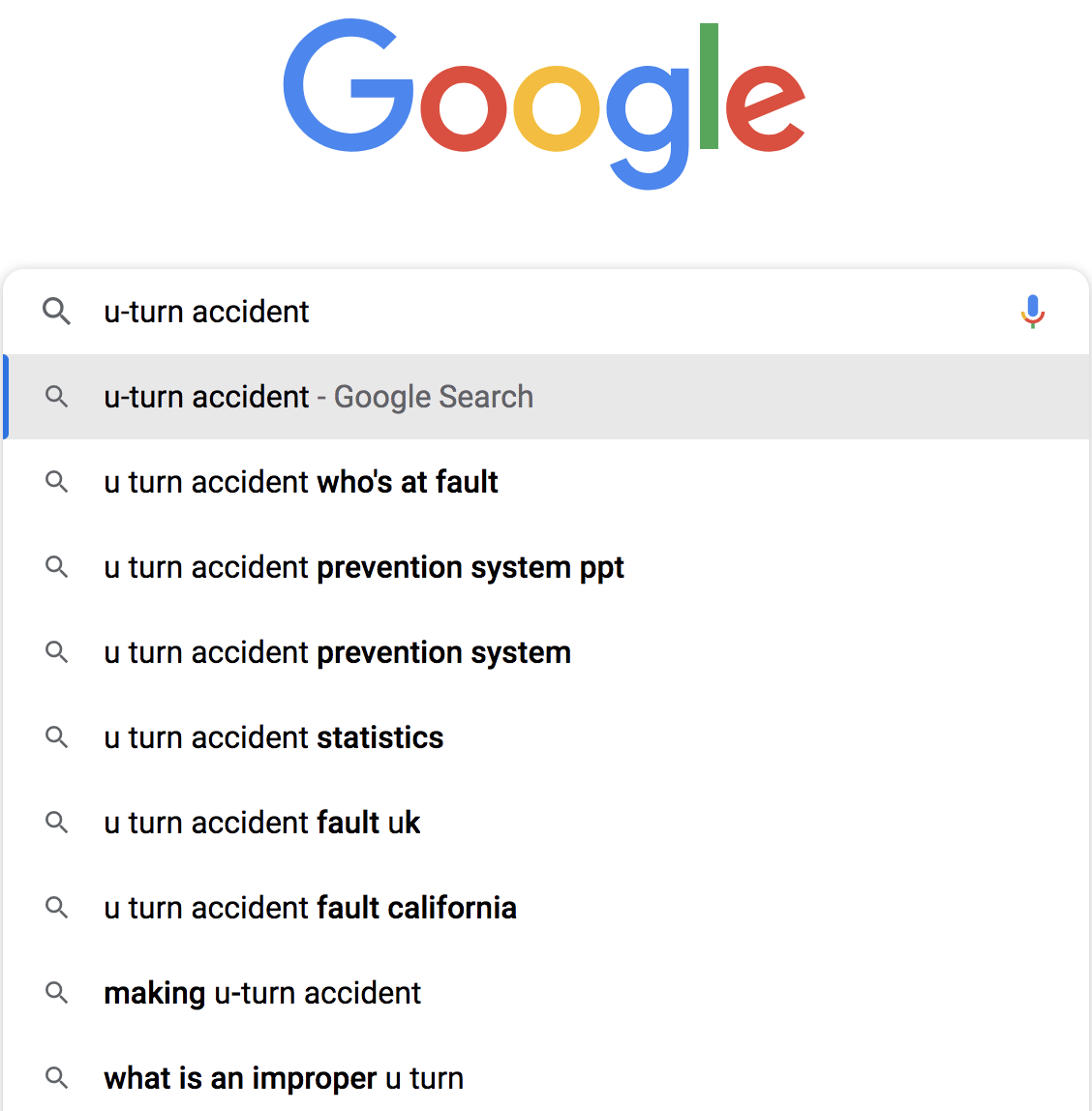
How to Find the Best Keywords For Your Law Firm’s SEO Campaign

Here’s how to find the best keywords for your law firm’s SEO campaigns:
What Is Keyword Research?
Keyword research is absolutely essential if you want to improve your firm’s search rankings. Keyword research is a process in which one finds search terms that people within their audience are searching for in hopes of ranking for those terms on search engines. When conducting keyword research, you’ll want to look at things like search intent, search volume, difficulty of ranking and estimated traffic.
Things to Consider When Conducting Keyword Research
You’ll want to focus on relevance, authority, and volume when researching keywords. These are the factors Google considers with keywords.
- Relevance refers to the fact that your content must align with the targeted keyword. Your content will not rank if it is not relevant to the keyword selected.
- Authority refers to how authoritative Google finds your site. Google wants to push content of sites that they feel are trustworthy and credible.
- Volume refers to how many people search for a term. If a keyword has a lower search volume then it may be easier to rank for it; however, ranking won’t pay off as very few people are searching for the term.
How to Research Keywords for Your SEO Campaigns
1. Make a List of Relevant Topics Related to Your Firm and Practice Areas
You’ll want to start out by determining which topics are relevant to your firm. It’s a good idea to start by thinking of your practice areas. Your practice areas are a great list of topics to start with and from there you can break it down even further and create a list of subtopics that are relevant to each of your practice areas. It’s important as you do this to put yourself in the shoes of your target audience and client personas. What topics might your client personas be interested in? What are they searching for? As you make this list of topics, remember to take note of their search volumes.
So, if your firm’s practice areas are Construction Law and Car Accidents, then your list may look something like this:
- Car accidents
- Rear end collisions
- taxi/uber accident
- Hit and run
- U-turn accidents
- Construction law
- Falling object accident
- Worker’s compensation
- Ladder accidents
- Heavy machinery accidents
2. Create Keywords Based on Your Topics
Now that you have some topic buckets, it’s time to fill in those buckets with keywords. This is where it’s important to remember search intent. So, for example, your audience may be simply Googling things like ‘rear end collisions’, but most people have a specific intent in mind when searching. Ask yourself what your audience’s end goal may be when searching. So instead of only optimizing for ‘rear end collisions’, consider that your audience could be searching ‘compensation for rear end collision’, ‘rear end collision lawsuit’, ‘going to court for rear end collision’. Try typing your general keywords into Google and seeing what kind of queries and terms are filled in automatically.
Your list then will start to look like this:
- Car accidents> car accident lawsuit, going to court for car accident, car accident lawyer, how to take a car accident to court
- Rear end collisions> compensation for rear end collision, rear end collision lawsuit, going to court for rear end collision
- Taxi/uber accident> who is liable for a taxi car accident, uber car accident, compensation for uber incident
- Hit and run> hit and run lawsuit, hit and run lawyer, how to sue for hit and run
- U-turn accidents> who is liable for a u-turn accident, u-turn car crash, u-turn laws to know for a car accident
- Construction law> construction accident, construction accident lawyer, construction accident lawsuit
- Falling object accident> falling object accident while working construction, falling object at construction job, falling object lawsuit
- Worker’s compensation> how to get worker’s compensation, worker’s compensation lawsuit
- Ladder accidents> who is liable for ladder accidents, ladder accident at work, construction ladder accident
- Heavy machinery accidents> heavy machinery construction accident, heavy machinery liability, heavy machinery accident at work
3. Look at Related Search Terms
To expand your list even more, you’re going to want to also take a look at what related search terms are out there. You can easily see this by searching your terms in Google.
4. Optimize Based on Location
Local SEO, and keywords based on location are especially important for law firms as most practices garner business based on location. Consider what cities and states most of your clients are from and create even more keywords based on location. So, instead of only optimizing for ‘car accident lawyer’, you’ll want to get more specific based upon location with keywords like ‘car accident lawyer Chicago’, ‘car accident lawyer Illinois’, ‘car accident lawyer Indiana’, etc.
5. Use Tools to Your Advantage
There are a number of easy to use tools out there that you can use to your advantage.
Here’s a list of some ones you can check out to help you come up with even more keywords:
- Moz
- Ahrefs
- Semrush
- Google Keyword Planner
- Keywords Everywhere
- SE Ranking
- KWFinder
6. Incorporate Long Tail Keywords
Long tail keywords are longer and more specific keyword phrases that visitors are more likely to use when they are closer to making a purchase or using a service. While they may have lower search volumes compared to short tail keywords, they often have higher conversion rates because they better capture user intent. For instance, instead of focusing solely on general terms like ‘car accident lawyer,’ you could target long tail keywords such as ‘best car accident lawyer in downtown Chicago’ or ‘affordable lawyer for rear-end collision lawsuit in Illinois.’ These more detailed queries can help attract highly targeted traffic, and can be less competitive, making them easier to rank for in search engine results.
Takeaway:
When broken down into these steps, keyword research can be a simple process. Keyword research is absolutely essential to SEO, so make sure you have a good understanding of what keywords you’d like to target that your audience is searching for.
Not sure how to rank for a keyword and optimize your site? We’re happy to help. We’ve helped many law firms and companies generate traffic through SEO strategies. Contact us today for a free consultation.
Are you ready to get started generating new, qualified leads?
Contact us to get started and let us help you energize your digital marketing and business development efforts.
Contact Us


